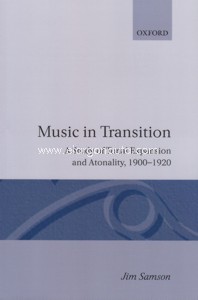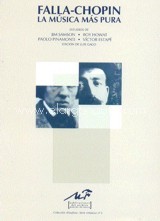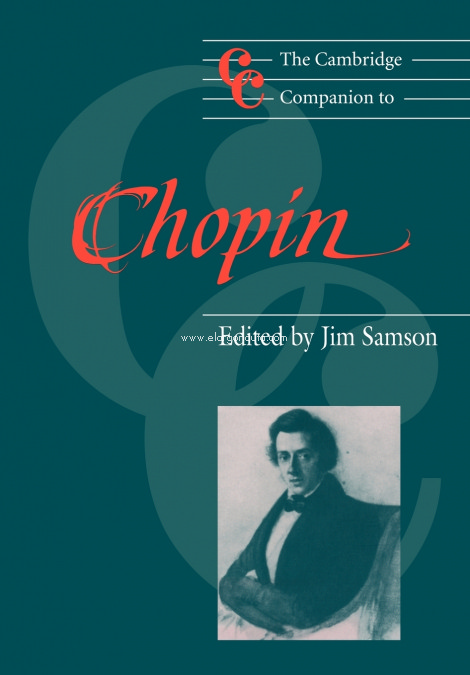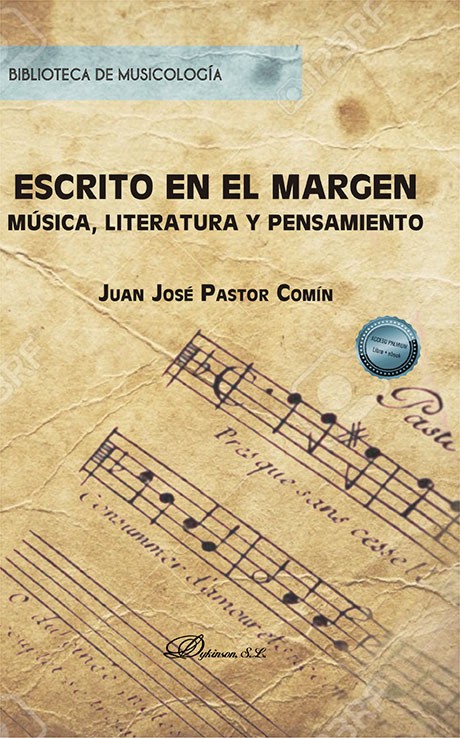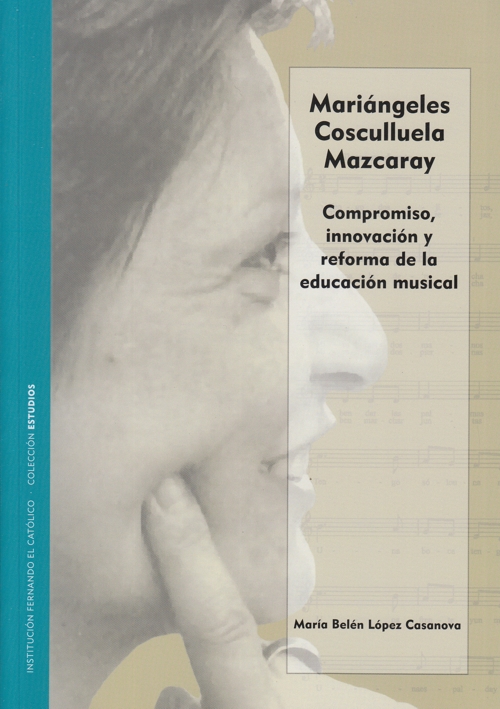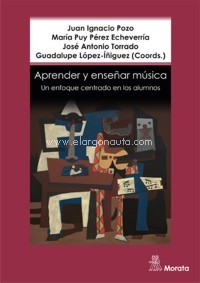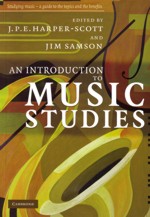
An Introduction to Music Studies
Harper-Scott, J. P. E.
;Samson, Jim
Cambridge University Press. 2009Ficha técnica
- EAN: 9780521603805
- ISBN: 978-0-521-60380-5
- Editorial: Cambridge University Press
- Fecha de edición: 2009
- Encuadernación: Rústica
- Dimensiones: 25x17
- Idioma: Inglés
- Nº páginas: 312
Bajo pedido
Sin stock. Si se pide hoy, se estima recibir en la librería el 17/05/24¡GASTOS DE ENVÍO GRATIS!
PVP. 27,90€
Añadir a la Lista de deseos
Why study music? How much practical use is it in the modern world? This introduction proves how studying music is of great value both in its own terms and also in the post-university careers marketplace. The book explains the basic concepts and issues involved in the academic study of music, draws attention to vital connections across the field and encourages critical thinking over a broad range of music-related issues.
- Covers all main aspects of music studies, including topics such as composition, opera, popular music, and music theory
- Provides a thorough overview of a hugely diverse subject, from the history of early music to careers in music technology, giving a head-start on the areas to be covered on a music degree
- New to ?neume?? Need a reminder about ?ripping?? - glossaries give clear definitions of key musical terms
- Chapters are carefully structured and organized enabling easy and quick location of the information needed
- Outlines the major benefits of studying music at degree level and covers the diverse approaches and topics a music student can expect to encounter on their course
- Glossaries provide clear definitions of key terms in music studies
- Textboxes contain concise summaries of essential information and present illustrative case studies to clarify important themes
- The RHUL Music Department has been ranked as the No. 1 Music department in the country (and joint No. 2 department of any kind, including sciences, in the whole country)
CONTENIDO:
Features of this book: a guide;
Introduction (J. P. E. Harper-Scott);
Part I. Disciplines:
1. Music history (Jim Samson);
Art versus history
Stylistic or social history?
Oral histories
Narratives in history
Hidden agendas?
2. Music theory and analysis (Rachel Beckles Willson);
Introduction
What is analysis for?
What is theory for?
3. The sociology of music (Katharine Ellis);
Introduction
Sociologies of music
The problem of "high art"
Are geniuses made, not born?
"Art worlds" and the music business
"Cultural capital" social status, and identity
4. The psychology of music (John Rink);
What is psychology?
What is the psychology of music?
What do music psychologists do?
How does "the musical mind" work?
How do we learn music?
How do we create music?
What is expressed in music and how do we perceive it?
5. Music aesthetics and critical theory (Andrew Bowie);
Introduction
Analytical and Continental aesthetics
Subjective and objective
Aesthetics and history
Judgment
Absolute music
Form and content
Music, politics, and meaning: critical theory
"New musicology"
Part II. Approaches to Repertoire:
6. World musics (Henry Stobart);
Introduction. World Music(s): exclusions and inclusions
Who studies world musics?
Does music have a place?
Can world music be mapped?
Sounding authentic?
Can we trust our ears?
7. Early music (Stephen Rose);
What is early music?
How far can we recreate the music of the past?
Music for the Church
Secular music
Notation and the role of the performer
The changing status of the composer
8. Opera (David Charlton);
Opera as entertainment and ritual
Analyzing the workings of opera
Writing in the present
Opera?s messages
Singing as persuasion
From semiotics to process
9. Concert music (Erik Levi);
Introduction
Patronage and funding
Concert repertory in the nineteenth century
The twentieth century and beyond
10. Jazz (Andrew Bowie);
Introduction
History and context
Improvisation and performance
Jazz as "critical music"
Jazz and the academy
11. Popular music (Elizabeth Eva Leach);
What is popular music?
How do we study popular music?
12. Music in film and television (Julie Brown);
Case study
Dividing film music for study
Approaches to textual study
How does it fit into the history of music?
Part III. Music in Practice:
13. Musical performance (Tina K. Ramnarine);
What is musical performance?
Musical performance as experience, process, and embodied practice
Musical performance as a mode of interaction
Who performs?
Learning musical performance
The contexts and functions of music
Social and political dimensions of musical performance
Studying performance in higher education
14. Composition (Julian Johnson);
Studying composition
Working methods
Composers, performers, and audiences
15. Music technology (Brian Lock);
Introduction: what is music technology?
How is it studied?
Composition
Recording
Composition and production
Composing with sound
Making music in home studios
Multimedia, film, the Web
Careers
Courses
16. The economics and business of music (Nicholas Cook)
Snapshot of 1825: Beethoven?s Ninth and the music business
The rise and fall of the music profession
Giving music its due
Classical music in the marketplace
The music business between past and future
Index



